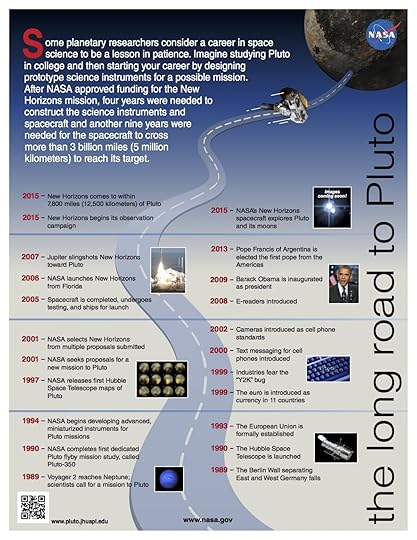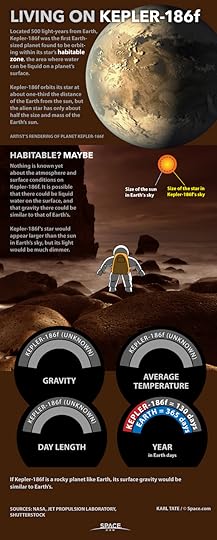R.P. Nettelhorst's Blog, page 42
June 13, 2015
Respect the Son
I will tell the promise
that the LORD made to me:
“You are my son, because today
I have become your father.
Ask me for the nations,
and every nation on earth
will belong to you.
You will smash them
with an iron rod
and shatter them
like dishes of clay.”
Be smart, all you rulers,
and pay close attention.
Serve and honor the LORD;
be glad and tremble.
Show respect to his son
because if you don’t,
the LORD might become furious
and suddenly destroy you.
But he blesses and protects
everyone who runs to him. (Psalm 2:7-12)
How long do you want to live? It depends on your relationship with God’s Son. David, and those who ascended the throne in Jerusalem after him, became sons of God—his representatives to the people of Israel. God had first told David that he would become God’s son when David had told God his desire to build a permanent Temple for him. After Nathan the prophet had told him no, God had made a covenant with David. God told him that there would always be someone to sit on his throne (2 Samuel 7:5-16).
God had in mind more than just an endless string of human rulers. The ultimate ruler of Israel—and of the nations of the world—would be God’s Son, Jesus Christ. Just as the sacrifices of the Old Testament pictured Jesus’ sacrifice on the cross, so the kings of Israel pictured Jesus’ rule in the kingdom of Heaven. God kept his promise to David, that he would always have a descendent ruling and that he would be God’s son, when Jesus came.
God promised that those who mistreated David or his descendents would suffer, just as those who blessed him would prosper. Likewise, the Father promised that all those who respected his Son, Jesus, would be blessed by him: they would have everlasting life.
 Send to Kindle
Send to Kindle
June 12, 2015
Duty
Then the LORD said to Aaron: “You, your sons, and your relatives from the tribe of Levi will be held responsible for any offenses related to the sanctuary. But you and your sons alone will be held responsible for violations connected with the priesthood.
“Bring your relatives of the tribe of Levi—your ancestral tribe—to assist you and your sons as you perform the sacred duties in front of the Tabernacle of the Covenant. But as the Levites go about all their assigned duties at the Tabernacle, they must be careful not to go near any of the sacred objects or the altar. If they do, both you and they will die. The Levites must join you in fulfilling their responsibilities for the care and maintenance of the Tabernacle, but no unauthorized person may assist you.
“You yourselves must perform the sacred duties inside the sanctuary and at the altar. If you follow these instructions, the LORD’s anger will never again blaze against the people of Israel. I myself have chosen your fellow Levites from among the Israelites to be your special assistants. They are a gift to you, dedicated to the LORD for service in the Tabernacle. But you and your sons, the priests, must personally handle all the priestly rituals associated with the altar and with everything behind the inner curtain. I am giving you the priesthood as your special privilege of service. Any unauthorized person who comes too near the sanctuary will be put to death.” (Numbers 18:1-7)
Everyone has a job to do. Aaron and his descendents were the priests. They alone were allowed to perform the sacrifices. The tribe that they belonged to, the tribe of Levi, was given the responsibility to help them perform their duties. It was like the difference between the pilots who fly the airplanes, versus those who do maintenance, run the radar and man the radios. Only the pilots are actually allowed in the cockpits to fly the planes. So the priests alone were permitted in the holy place and most holy place when the sacrifices were performed. The priests alone killed the sacrificial animal and placed its meat on the altar. But all those involved were necessary and important. Without the support staff—the Levites—the sacrifices couldn’t have been conducted. Everyone involved was important and necessary.
Being on the front lines of worshipping God was a dangerous position: much like the pilots who fly into enemy territory. Those back at the base, like the Levites, had their own dangers to worry about.
Each and every person has a role to play for God. Only as we work together can the goal—the ultimate purpose—be achieved.
 Send to Kindle
Send to Kindle
June 11, 2015
You Matter
Then the LORD spoke to Moses in the Wilderness of Sinai, saying: “Number the children of Levi by their fathers’ houses, by their families; you shall number every male from a month old and above.”
So Moses numbered them according to the word of the LORD, as he was commanded. These were the sons of Levi by their names: Gershon, Kohath, and Merari. And these are the names of the sons of Gershon by their families: Libni and Shimei. And the sons of Kohath by their families: Amram, Izehar, Hebron, and Uzziel. And the sons of Merari by their families: Mahli and Mushi. These are the families of the Levites by their fathers’ houses.
From Gershon came the family of the Libnites and the family of the Shimites; these were the families of the Gershonites. Those who were numbered, according to the number of all the males from a month old and above—of those who were numbered there were seven thousand five hundred. (Numbers 3:14-22)
If people live forever, then they are of infinite worth. God told Moses to do a census of the Israelites by family and tribe. The result was lists and numbers. Most people think that the genealogies in the Bible are boring. So why did God tell Moses to create them? What purpose do they have?
They served as a reminder that each individual mattered to God. Human organizations, whether civilizations, secular clubs, denominations, corporate or nonprofit organizations, are all mortal. Nothing lasts forever except for individual human beings. Since individuals count, God had Moses count them. God was not concerned just with the big picture. He cared about each person and what mattered to him or her.
Why count only the males only from a month old and up? It probably had to do with infant mortality rates which were very high until the advent of antibiotics in the mid-twentieth century.
We are more than just numbers or names on a list. Each and every one of us is worth the effort of keeping track of. We matter to each other and we matter to God.
 Send to Kindle
Send to Kindle
June 10, 2015
Stop Your Caterwauling
The LORD said to Samuel, “How long will you grieve over Saul? I have rejected him from being king over Israel. Fill your horn with oil and set out; I will send you to Jesse the Bethlehemite, for I have provided for myself a king among his sons.” Samuel said, “How can I go? If Saul hears of it, he will kill me.” And the LORD said, “Take a heifer with you, and say, ‘I have come to sacrifice to the LORD.’ Invite Jesse to the sacrifice, and I will show you what you shall do; and you shall anoint for me the one whom I name to you.” Samuel did what the LORD commanded, and came to Bethlehem. The elders of the city came to meet him trembling, and said, “Do you come peaceably?” He said, “Peaceably; I have come to sacrifice to the LORD; sanctify yourselves and come with me to the sacrifice.” And he sanctified Jesse and his sons and invited them to the sacrifice. (1 Samuel 16:1-5)
Sometimes you’ve just got to let go of an issue. Samuel liked Saul and didn’t like what had happened with him. He hoped that there was some way of fixing the situation, restoring the relationship, getting God and Saul back together. But it was too late for that and God told Samuel to let it go. It was time to find Saul’s replacement.
Which of course raised a new concern for Samuel: Saul was the king, still, regardless of God’s pronouncements against him, and Samuel knew that Saul would kill him as a traitor if he went and anointed someone else to take his place. God reassured Samuel, however, and told him how to keep the plan hidden from Saul. Like a general misleading the enemy, or a quarterback misleading the opposing team, so God told Samuel how to mislead Saul and get the job done that he needed to do.
If God has given us something to do, then it isn’t impossible for us to do it. If God wants it to get done, then it will get done. No one can thwart God—or us, if we’re doing what God wants from us.
 Send to Kindle
Send to Kindle
June 9, 2015
An Unhappy God
The LORD told Samuel, “Saul has stopped obeying me, and I’m sorry that I made him king.”
Samuel was angry, and he cried out in prayer to the LORD all night. Early the next morning he went to talk with Saul. Someone told him, “Saul went to Carmel, where he had a monument built so everyone would remember his victory. Then he left for Gilgal.”
Samuel finally caught up with Saul, and Saul told him, “I hope the LORD will bless you! I have done what the LORD told me.”
“Then why,” Samuel asked, “do I hear sheep and cattle?”
“The army took them from the Amalekites,” Saul explained. “They kept the best sheep and cattle, so they could sacrifice them to the LORD your God. But we destroyed everything else.”
“Stop!” Samuel said. “Let me tell you what the LORD told me last night.”
“All right,” Saul answered.
Samuel continued, “You may not think you’re very important, but the LORD chose you to be king, and you are in charge of the tribes of Israel. When the LORD sent you on this mission, he told you to wipe out those worthless Amalekites. Why didn’t you listen to the LORD? Why did you keep the animals and make him angry?” (1 Samuel 15:10-19)
Just as God became sorry in the time of Noah that he had made the human race, so the day came when he became sorry he had made Saul Israel’s first king. God told Samuel about his disappointment and sent Samuel to confront Saul.
Rather than acknowledging that he had disobeyed the commandment of God, Saul offered excuses and justifications. In essence, Saul told God, “you just don’t understand my special circumstances.” Neither Samuel nor God would have any of it.
God had needed Saul to wipe out the Amalekites. He hadn’t asked for a sacrifice of some of the animals, he hadn’t asked that certain individuals among the Amalekites be spared. Besides, it wasn’t about sacrifice in the first place. It was, instead, all about lining Saul’s pockets and the pockets of his favorites. He had succumbed to political expediency and greed. Saul’s behavior exemplified the whole reason God hadn’t wanted the Israelites to have a king in the first place.
If you love God; if it’s really not all just about you; then just do what God has asked. Don’t try to find ways out of it to satisfy what you think is best for you, as if God doesn’t really have your best interests in mind. You either love him or you don’t. Saul didn’t.
 Send to Kindle
Send to Kindle
June 8, 2015
The Long Road to Pluto
June 6, 2015
CubeSats
June 5, 2015
E-books
My wife got me my first Kindle about a year after it first came out; I replaced it about a year or so ago with a newer version, the Kindle Paperwhite. I also have the Kindle apps on my computers (both my desktop and a Microsoft Surface Pro 3) and on my cellphone (Samsung Galaxy 5). My wife has a Kindle Fire, my oldest daughter has a Kindle Fire HDX, and also has the app on her Samsung Galaxy Note 4; my middle daughter has her own Kindle Paperwhite and youngest daughter uses the Kindle app on her Apple iPad mini.
Our house is filled with traditional books: my home office is lined floor to ceiling, on all four walls, with bookcases crammed with books. One entire wall of the living room, floor to ceiling is also a bookcase, also crammed with books. We easily have more than 3000 volumes in my house; the shelves are overflowing.
Since getting the Kindle, I don’t buy as many traditional books; instead, I prefer to get the ebooks. The same can be said of newspapers and magazines. If there is an electronic version available, that’s what I choose. It’s very simple and very practicle: ebooks don’t take up shelf space I don’t have, and magazines and newspapers, if they are e-versions, don’t pile up or need to be disposed of or stored.
Some people tell me that the like the feel of books, their smell. I like such things too. However, when I’m reading, I’m not thinking about how a book looks or smells or feels. I’m reading: I’m lost in the story, lost in the narrative, lost in gaining the information—depending on what I’m reading, whether fiction, nonfiction, or poetry. When I’m reading, I don’t care what the words are stored on: paper, e-ink, or phosphors.
I’m a theologian and a Bible scholar. I’ve been reading the Bible through, cover to cover, on an annual basis since I was 16. I use a program on my computer now, specifically Logos Bible Works (version 6, now); I wouldn’t want to use the Bible any other way. I can access and study it more exhaustively and faster using a computer than I ever could doing it with traditional books. The program includes reference materials: multiple translations, the Greek, Hebrew and Aramaic texts, commentaries, dictionaries, and the like so that I can quickly and easily study. I spend a fraction of the time I otherwise would just looking things up and have more time now for the actual reading and studying. And instead of having to write out a text when I want to quote it I can now just cut and paste it. Writing the books I have on the Bible went much quicker just because of being able to cut and past passage instead of having to type them all out by hand.
So, yes, ebooks are “green”: they don’t use dead trees, no trees gave up their lives for them. But what matters to me is the ease and time savings, the convenience and the storage savings—and beyond that, even the books themselves are cheaper: classic texts, works that are now in the public domain, are free! They cost nothing: that beats even the cost of books in a used book store. And newer books are inevitably cheaper than they would be even as paperbacks, let alone the hard cover editions. And rather than making a trip to a library or book store and then maybe having to wait for them to order what I want, I can get anything instantly, withing 60 seconds, on my Kindle. No physical bookstore has the inventory that Amazon has. I’m always disappointed when I discover that a book is not available in an e-version.
 Send to Kindle
Send to Kindle







